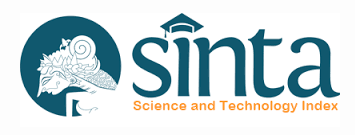PENERAPAN MANAJEMEN MUTU TERPADU PADA LEMBAGA DAKWAH
Abstract
Abstract; Era informasi ataupun era globalisasi menuntut kapasitas manajemen organisasi melakukan tranformasi menuju perubahan manajemen untuk mengimplementasikan manajemen kontemporer yang disebut Total Quality Management (TQM). TQM adalah suatu pendekatan yang seharusnya dilakukan oleh organisasi masa kini tak terkecuali lembaga dakwah untuk memperbaiki ouputnya, menekan biaya produksi serta meningkatkan produksinya. TQM mempunyai konotasi seluruh sistem seluruh proses, seluruh pegawai, termasuk pemakai produk dan jasa juga suplier. Total Quality berarti karakteristik yang memenuhi kebutuhan pemakai, sedang Management berarti proses komunikasi vertical dan horizontal, top-down dan buttom-up, guna mencapai mutu dan produktivitas. TQM di bidang organisasi dakwah/publik tentu membutuhkan penyesuaian. Karena permasalahan kualitas merupakan sesuatu yang kompleks maka perlu dilakukan pertahapan yang dapat memberikan ruang usaha untuk transisi menuju tercapainya kualitas. Melakukan integrasi satu sama lain dalam suatu organisasi, sehingga dapat memberikan dampak positif pada battom line perusahaan/organisasi. Melakukan upaya peningkatan kinerja secara terintegrasi dalam kebutuhan bisnis dan industri yang dirumuskan secara sistematik dalam suatu master improvement story bukan peningkatan secara acak (random performance improvement), parsial dan tak terintegrasi. TQM memerlukan keterampilan manajemen puncak dalam mengelola organisasi yang bekerjasama dengan senior manajer dalam menentukan kualitas dan produksi yang lebih baik agar dapat bersaing dengan organisasi lain. Sebagai tujuan akhir dan TQM adalah kesejahteraan organisasi dan seluruh karyawan. Kata Kunci: Implementasi, Manajemen, Kualitas Terpadu The information age or era of globalization requires management of the organization doing the transformation capacity for change management to implement contemporary management called Total Quality Management (TQM). TQM is an approach that should be done by the organization today is no exception da’wa agencies to improve the output, reduce production costs and increase production. TQM has the connotation of the whole system of the whole process, all employees, including consumer products and services are also suppliers. Total has the connotation of the whole system, ie the entire process, all employees, including users of products and services, as well as suppliers. Quality means the characteristics that meet the needs of users, while Management means the process of vertical and horizontal communication, top-down and bottom-up, in order to achieve quality and productivity. TQM in the field of da'wah organization / public course require adjustment. Because of quality problems are complex it is necessary to pertahapan that can provide business space for the transition to the achievement of quality. Integrate with each other in an organization, so it can have a positive impact on battom line company / organization. Make efforts to increase performance integrated in business and industry needs systematically formulated in an improvement master story not increase at random (random performance improvement), partial and not integrated. TQM requires top management skills in managing organizations that work with senior managers in determining the quality and better production in order to compete with other organizations. As a final goal and TQM are welfare organizations and employees. Keywords: Implementation, Management, Integrated Quality
How to Cite
Gani, S. (1). PENERAPAN MANAJEMEN MUTU TERPADU PADA LEMBAGA DAKWAH. Jurnal Dakwah Tabligh, 15(1), 25-34. https://doi.org/10.24252/jdt.v15i1.336
Issue
Section
Vol. 15, No. 1, Juni 2014
Once an article was published in the journal, the author(s) are:
granted to the journal right licensed under Creative Commons License Attribution that allows others to share the work with an acknowledgment of the work's authorship. permitted to publish their work online in third parties as it can lead to wider dissemination of the work. continue to be the copyright owner and allow the journal to publish the article with the CC BY license receiving a DOI (Digital Object Identifier) of the work.





